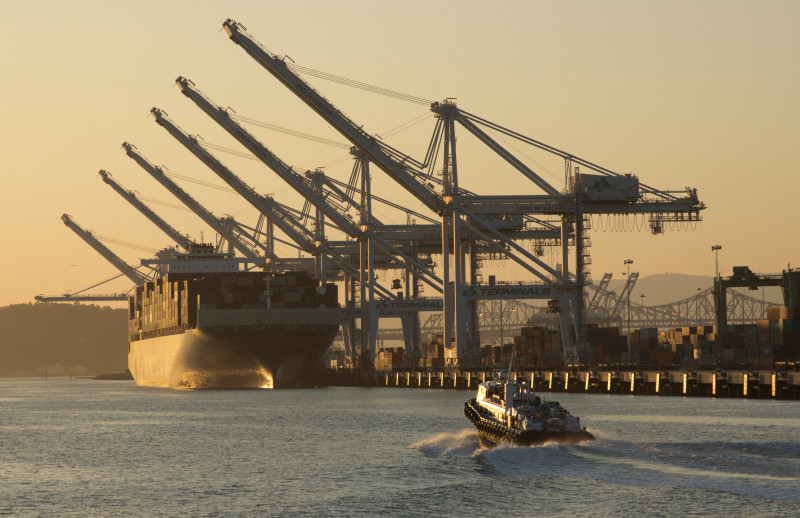"I'm optimistic about the prospects for an extension that would benefit both sides," said Perez, who was brought in to end the last port labor dispute.
Representatives at the Port of Oakland are also hoping for the best.
"The Port sees it as a positive sign that both sides are willing to discuss a contract extension," said Mike Zampa, a Port of Oakland spokesman. "Labor-management collaboration has been key to improvements in cargo-handling performance at the Port of Oakland in 2016."
In fact, the port announced Monday that work could start in November to nearly double the size of its second-largest marine terminal as it sees increased cargo volume.
Those hopeful statements are a far cry from the tense dispute that slowed down, and at times halted, service at West Coast ports two years ago, hurting many businesses in California that were caught in the middle.
The new talks are in some way prompted by a fear of returning to those days.
It would be historic to have an extension to a contract this early, according to UC Berkeley professor Harley Shaiken, who specializes in labor issues.
"It's clearly in the strong interest of both sides to be pre-emptive here," Shaiken said. "It isn't simply the threat of a strike that is disruptive, but rather the uncertainty months before that disrupts supply lines."
Even the possibility of another round of labor strife could push some manufacturers and retailers to use other routes that favor the Panama Canal as well as ports along the East Coast and Gulf of Mexico, Shaiken said.
"It used to be that geography trumped everything and the West Coast ports had a lock on that," Shaiken said. "That's no longer the case."
ILWU and PMA officials would not comment, other than referring to a statement they made in late September, announcing the exploratory contract extension talks.
